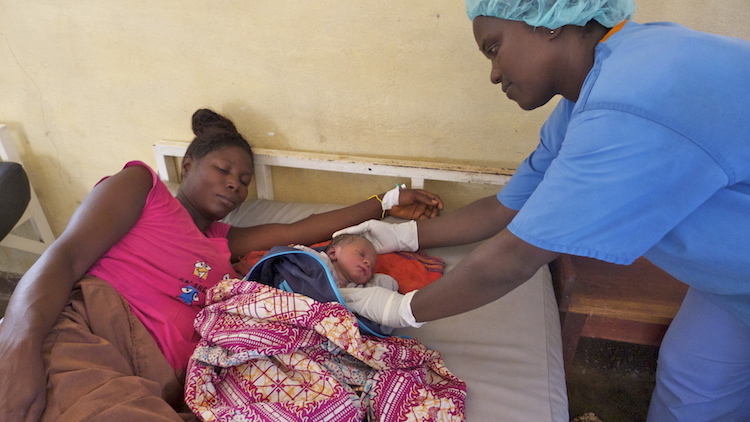
By Joan Erakit
UNITED NATIONS (IDN) – In the early hours of August 14, disastrous weather took to Freetown as the city was flooded with torrential downpour. Shortly after, a mudslide followed dragging countless homes down a suburban hillside in slushy red dirt in Regent, east of Freetown. The Red Cross reported at least 200 people dead as aid organizations and local authorities rushed to the scene.
In a statement attributable to the Spokesperson of the UN Secretary-General, Deputy Spokesperson Farhan Haq told IDN that, “the Secretary-General is saddened by the deaths and devastation caused by the mudslide and flooding in the town of Regent, Sierra Leone, and throughout Freetown,” adding, “the Secretary-General extends his condolences to the people and Government of Sierra Leone for the loss of life and destruction caused by this natural disaster.”
A country that was thrust in the spotlight as it battled Ebola a few years ago, Sierra Leone has been quietly rebuilding itself after loosing almost 3,900 civilians to the epidemic.
In 2015, Sierra Leone held the highest maternal death rate in the world, according a United Nations report. The United Nations Population Fund (UNFPA) has continued to prioritize maternal healthcare in Sierra Leone, most recently highlighting the role for which midwives played in effectively addressing proper care for women.
In areas of the country where women’s access to maternal healthcare is waylaid by poor infrastructure, lack of service providers and mobility, midwives have proved to be the countries greatest health care asset.
It is only fitting that the current flood and rising death toll concern the United Nations and other organizations working to mobilize support for victims in Freetown, knowing very well the impact it could have on women who might be pregnant or due to deliver.
UNFPA reports that around 830 women still die every day from complications related to childbirth and pregnancy – most of them entirely preventable. As the United Nations works towards achieving Agenda 2030 for the Sustainable Development Goals – specifically Goal 3, which calls to, “Ensure healthy lives and promote well-being at all ages,” and also highlights maternal health, natural disasters such as the recent events in Sierra Leone are a cause for concern.
Last year, the UN reported that, “78 per cent of live births worldwide benefited from skilled care during delivery, compared to 61 per cent in 2000.”
Such figures unearth the dire need for trained health care providers not only during birth, but also in times of crisis or disaster when mothers-to-be could be physically trapped or sustain pregnancy alone, having to wait hours if not days to receive post-natal care.
The United Nations has been working closely with the government of Sierra Leone to strengthen capacity and training for health care providers, including midwives and in the case of the recent flood, proactively monitoring the situation.
The UN Sierra Leone office sent a Tweet out at 5:32am Eastern Standard Time stating, “After heavy rains: reports of #flooding and #mudslides in #Freetown. Assessing damage, preparing response. “
The Associated Press reported that local mortuaries were over capacitated and running out of space to house the bodies of the recently deceased with the death toll likely to rise as many are feared to be buried alive. [IDN-InDepthNews – 15 August 2017]
Photo: UNFPA does a lot of work in Sierra Leone especially with regards to maternal health. Credit: Joan Erakit | IDN-INPS
IDN is flagship agency of the International Press Syndicate











